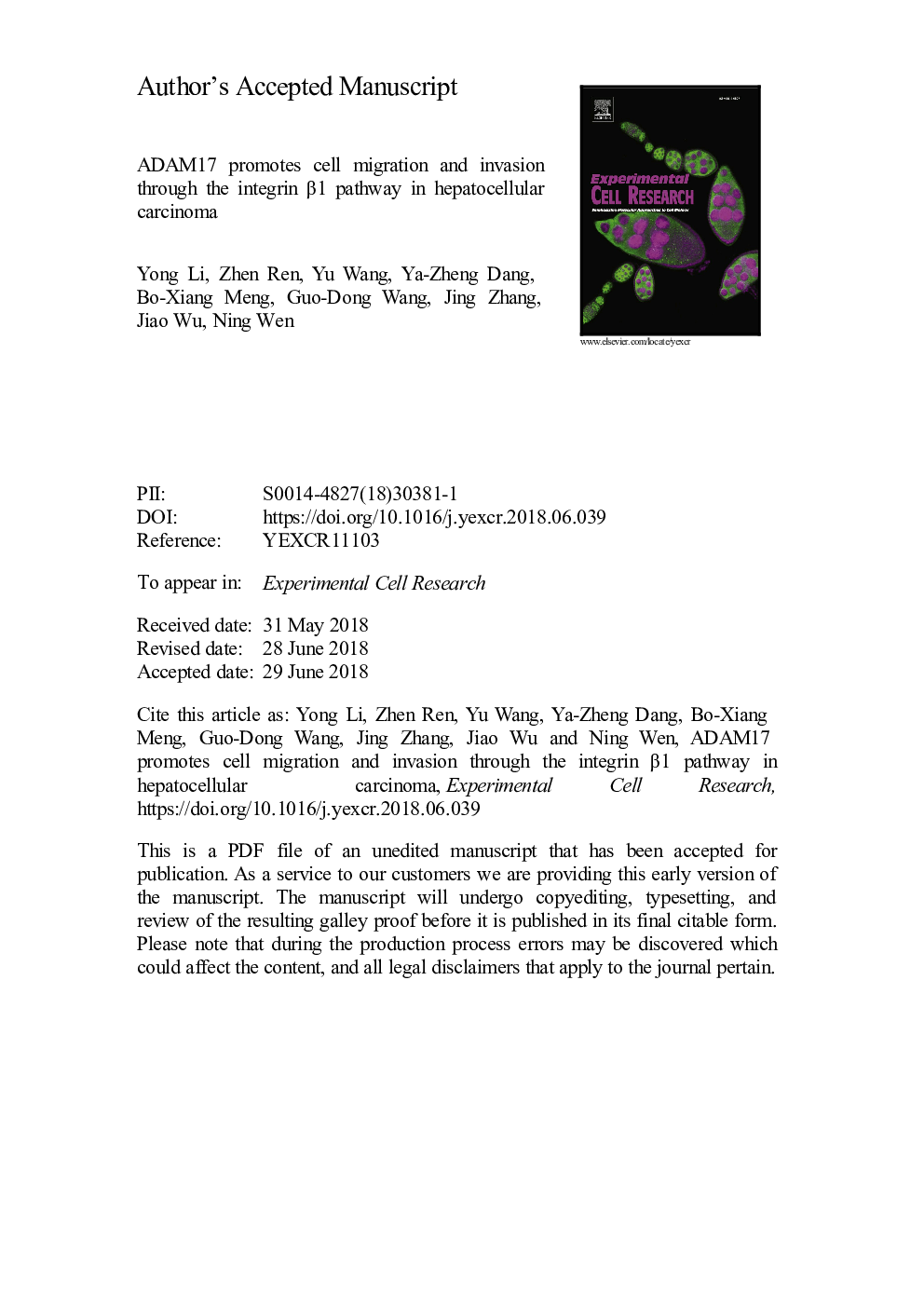| Article ID | Journal | Published Year | Pages | File Type |
|---|---|---|---|---|
| 8949709 | Experimental Cell Research | 2018 | 30 Pages |
Abstract
ADAM17 is believed to promote tumor development by facilitating both cell proliferation and migration. In this study, we investigated the involvement of ADAM17 and the activation of the integrin pathway in the regulation of the malignant properties of hepatocellular carcinoma cells and tissues. ADAM17 was positively correlated with active integrin β1, which was determined using a human tissue microarray and an N-nitrosodiethylamine-induced HCC mouse model. We found elevated ADAM17 and active integrin β1 levels in HCC tissues compared with adjacent liver tissues, and the active integrin β1 levels were associated with tumor size and TNM grade. High ADAM17 and active integrin β1 levels in tumor tissues were significantly associated with poor survival of HCC patients. RNAi-mediated ADAM17 knockdown and integrin β1 blockade significantly attenuated the migration and invasion of HCC cells, and overexpression of ADAM17 showed the reverse effects. ADAM17 interference attenuated the intrahepatic growth and metastasis of HCC cells in an orthotopic xenograft model. ADAM17-knockdown cells showed diminished levels of active integrin β1, p-FAK, p-AKT, MMP-2 and MMP-9. ADAM17 knockdown significantly attenuated the translocation of the Notch1 intracellular domain into the nucleus, whereas overexpression of the Notch1 intracellular domain rescued the translocation and enhanced the activation of integrin β1. Our data provide evidence for ADAM17 as an important determinant of malignant properties via regulation of integrin β1 activation and Notch1 signaling. Inhibition of ADAM17 may provide viable therapeutic potential for preventing HCC metastasis.
Keywords
ECMADAMs with thrombospondin motifstumor, node and metastasisNotch1 intracellular domainp-FAKNotch1N-nitrosodiethylamineADAMTSTNMTACEADAM17DenRT-PCRMMPbFGFEGFTGF-β1HCCIntegrin β1transforming growth factor beta 1a disintegrin and metalloproteinaseepidermal growth factorbasic fibroblast growth factorPhenobarbitalExtracellular matrixmatrix metalloproteinasereverse transcription polymerase chain reactionNICHepatocellular carcinoma
Related Topics
Life Sciences
Biochemistry, Genetics and Molecular Biology
Cancer Research
Authors
Yong Li, Zhen Ren, Yu Wang, Ya-Zheng Dang, Bo-Xiang Meng, Guo-Dong Wang, Jing Zhang, Jiao Wu, Ning Wen,
